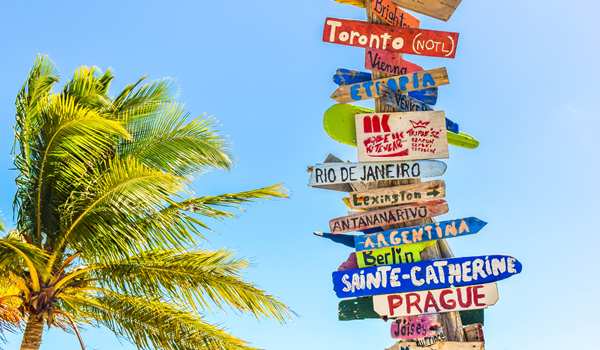Travel Health
Advice for Travellers
As you will be aware, GP surgeries are working under increasing pressure, & are having to prioritise the services they can provide. We have offered a full travel service free of charge until recently, but as the surgery receives no funding for this & it is very time consuming, we are sadly no longer able to continue this. The NHS has a very comprehensive web-site, giving the information you need to identify any vaccines advised for trips abroad, & ensure that you stay as healthy as possible. This can be found at www.fitfortravel.nhs.uk
The following vaccinations are commonly required for many holiday destinations, and are free of charge on the NHS;
Diphtheria, tetanus & polio (combined)
Hepatitis A
Typhoid
These can be administered by a nurse at this surgery, if needed.
Cholera medication is also available on the NHS, but is not commonly required.
Other vaccinations may be necessary for more exotic or unusual destinations, complex travel itineraries, or long stay vacations. These need to be given at a high street travel clinic (eg, Nomad, Masta or Sta Travel). There will be a charge for these. If you would rather have all of your vaccinations done at these clinics, they can also give the vaccines in bold (above) but they will charge for these.
We strongly advise you to check your requirements at least three months before travel, as sometimes a course of up to three vaccinations needs to be given over the course of several weeks.
It is your responsibility to ascertain which vaccinations (and, if relevant, anti-malaria tablets) you need, & also to inform yourself fully of recommended travel safe precautions.
To do this, you should visit the NHS Fit For Travel website at www.fitfortravel.nhs.uk & read the information relevant to the country you are visiting.
Follow these simple steps:
- Select the country you are visiting from the ‘destinations’ box on the left.
- Read the ‘Advice for all travellers’ information, following links in blue. This will give you detailed information about health risks abroad such as insect bites, sun-exposure, contaminated food & drink. Also advice is given about visas & health insurance.
- Note the ‘Courses or boosters usually advised’. If you have a record of your immunisations/vaccinations at home, see if you are up-to-date with the recommended vaccines.
Hepatitis A – if you have had two vaccinations, you are covered for 25 years (from the 2nd dose)
Diphtheria, tetanus & polio – booster required every 10 years (for travel purposes only)
Typhoid – booster required every 3 years (for travel purposes only)
Please be aware that it is not good for the immune system to unnecessarily have vaccinations more frequently than this. If you are unsure of when you had any previous vaccinations, ask the surgery for a printout of your vaccination history. You should keep a record of this.
The ‘vaccinations sometimes advised’ section usually relates to back-packers, people travelling for more than 4 weeks, or special situations, eg working in health care projects, or with animals. If you are planning such a trip you need to make arrangements to have these at a high street travel clinic (eg, Nomad, Masta, The Medical or Sta Travel). There will be a charge for these.
- If you think that you need any of the vaccinations provided by the NHS, (in bold above) make an appointment with the nurse, bringing with you a printout of the relevant Fit For Travel information.
- Read the information about malaria, (if this is an issue where you are going), and follow the ‘precautions’ link. If anti-malaria tablets are advised for your destination, there will be a link to a ‘malaria map’ which will show the details of the risk for your destination. If proguanil and/or chloroquine are advised, these can be bought over the counter at a pharmacy. These need to be started before entering a malaria area, continued during the trip, & for a period of time after leaving, so you need plan ahead. We also advise you to take your itinerary and dates with you to work out how many you need to buy.
- If Atovaquone/proguanil (Malarone) or doxycycline or mefloquine (Lariam) are recommended, read through the information carefully, and go to a high street travel clinic to buy your supply.
- The site will also indicate which anti-malaria tablets are effective in that region.
- Read the entire section ‘other health risks’ which contains further up-to-date information about your travel destination, including current outbreaks, risks, etc.
TRAVEL SAFELY AND ENJOY YOUR HOLIDAY!
Useful contacts:
Nomad: www.nomadtravel.co.uk 01341 555061
Sta: www.statravel.co.uk 0117 3290204
The Medical: www.themedical.co.uk 0117 3763732

Further Travel Information
The following websites will give you additional travel advice
Travel Health for information of vaccinations available on NHS
MASTA for private vaccination clinics
Gov.uk for specific country travel advice
EHIC to apply for your free European Health Insurance Card

